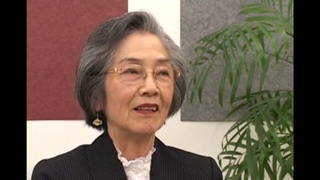Interviews
Father’s words
On the day I left to put on the uniform, he took time off which he had to request because under the laws, you gotta get the approval of the employer, you can’t just walk away you know. And so he accompanied me on the street car and if you can picture the two of us sitting side by side, both of us looking straight ahead and nothing is said until we get close to the destination.
When we know that the street car is gonna stop, he clears his throat and he says, this country has been good to us. It has given me jobs, it has made it possible for you to go to school, we have lived a good life. We owe a lot to the country. We owe a lot, therefore if you must give your life, so be it. But whatever you do, do not dishonor the family, do not dishonor the country. And that was it.
It appears that this was an important part of the Nisei’s, as you put it, values system. Because I recall very vividly the night before we began our first attack. So that following morning I’m part of a squad, assistant squad leader, there were 12 of us waiting for the orders to start moving, so I sat down and said, “By the way, what were you people thinking about last night?” I’m just curious. After a while, one of them popped up and he said, “I was praying that I don’t be a coward.” And the next one said, “Yeah I was thinking about the same thing. That would bring shame to the family.” Everyone said the same thing in different ways. Do not dishonor the family, right?
So here, these are the men who work in the plantations, who work in the fields, men who volunteered from the camps, you know. Cause they’re mixed with kotonks and us. And everyone of ‘em, whether they were in Montana, Wyoming, or Arizona, or Honolulu, came out the same thing.
Date: May 31, 2001
Location: California, US
Contributed by: Watase Media Arts Center, Japanese American National Museum











